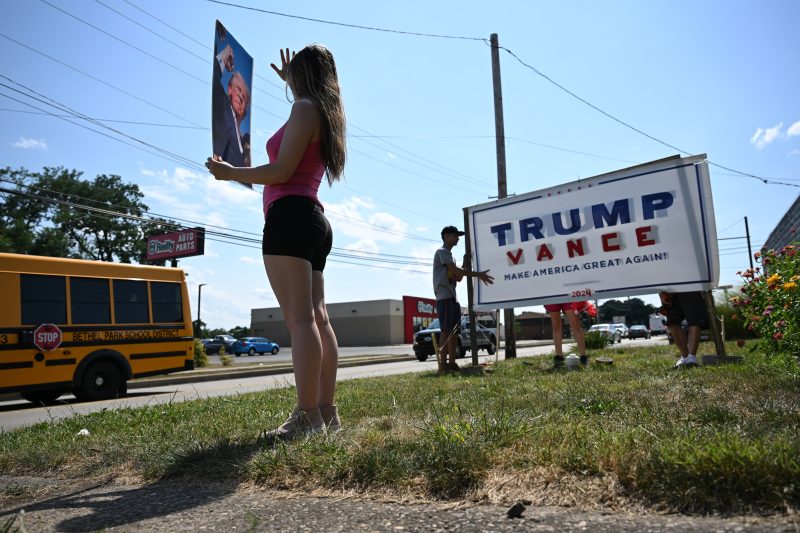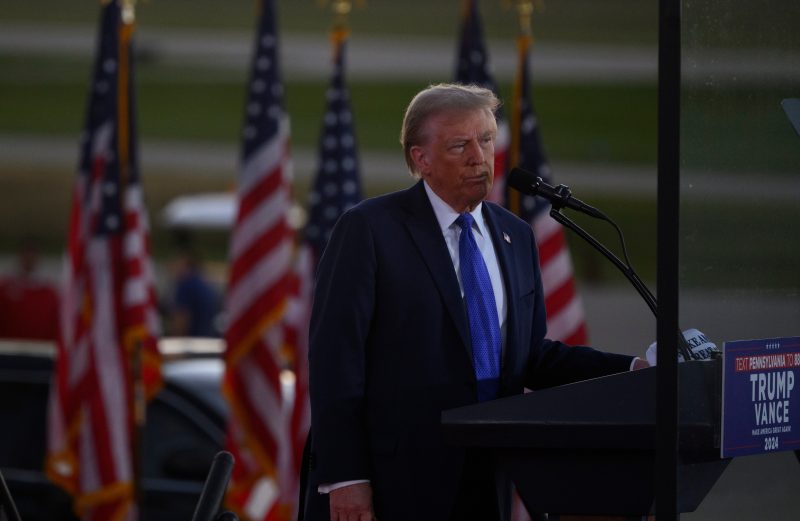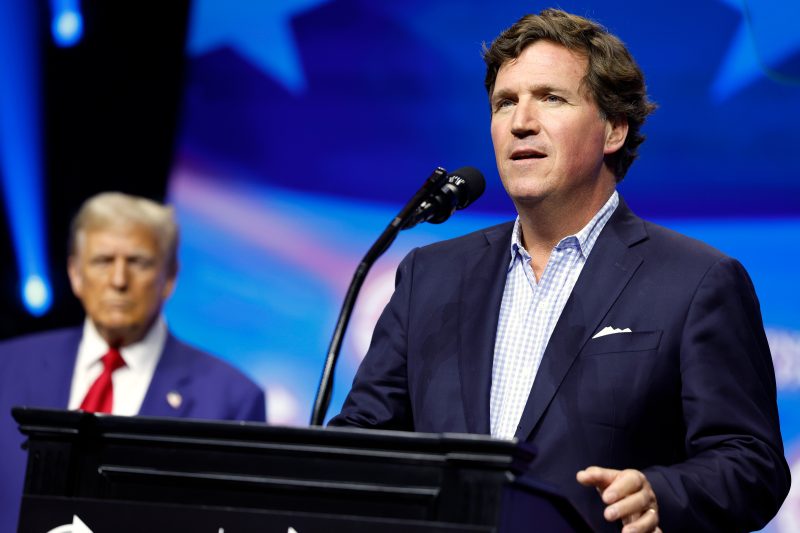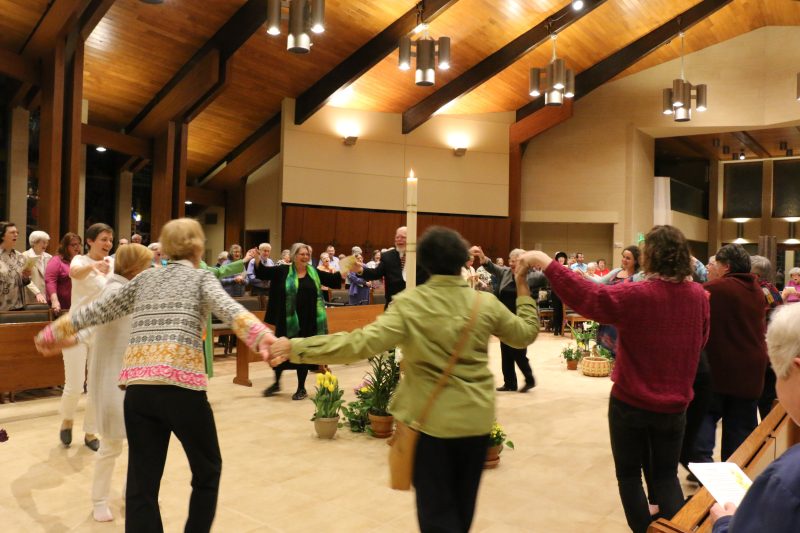
Investigators raced to crack into phone used by Trump rally gunman
New, faster phone-cracking technology was used to access the phone of the Trump rally gunman, according to people familiar with the investigation who described the ongoing race to find any clues to the 20-year-old’s motive for trying to kill the former president.
Officials said Monday they were able to access a cell phone belonging to Thomas Matthew Crooks, of Bethel Park, Pa., but they did not describe the technology behind that effort. Investigators are also exploring the possibility the gunman may have used two phones, after agents recovered a cellphone in Crooks’s house with a dead battery, according to the people familiar with the matter, who spoke on the condition of anonymity to describe details of an ongoing investigation.
Authorities say Crooks fired an AR-style rifle at Trump from a rooftop near a campaign rally Saturday in Butler, Pa., killing one person in the crowd and critically injuring two others.
Trump, who would officially become the Republican presidential nominee two days later, was wounded in the ear.
A Secret Service sniper on a different rooftop then shot and killed the gunman.
Despite a massive investigation launched after the shooting, and an avalanche of media attention, very little information has surfaced publicly about Crooks’s interests and beliefs, or what may have led him to climb the roof of the building, flatten himself against it and open fire with a gun his father had legally purchased 11 years before.
After the shooting, investigators approached Crooks’s body and found he was carrying a cellphone. That device was first sent to the Pittsburgh FBI office, which did not have the technology to open it quickly, according to the people familiar with the investigation.
Officials sent the phone to the FBI’s laboratory in Quantico, Va., on Sunday, these people said.
At Quantico, FBI agents used technology from Cellebrite, a company well known among law enforcement companies for helping them access data on phones seized or recovered in criminal investigations, to get into the phone quickly, the people said.
The phone was a relatively new model, which can be harder for law enforcement to access than old phones because of newer software, according to technology experts. In many federal investigations, it can take hours, weeks or months to open a suspect’s phone.
In the Crooks case, which was an urgent priority for both the FBI and Cellebrite, the contractor’s technology was able to open it in less than 40 minutes, the people said.
Cracking the phone did not crack the case, the people said. It offered some leads to pursue, but did not hold any immediate evidence of motive or what agents call “derogatory information” — clues to criminal plans or associates.
Crooks’s home life, and relationship with his parents, is also of particular interest to investigators as they try to understand his thinking, according to two people familiar with the situation who spoke on condition of anonymity to discuss an investigation that is in its early stages.
Both of his parents have some health issues, and while the young man lived with them, so far it does not appear to investigators that they were keeping close tabs on his activities or interests in the days and months leading up to the shooting, these people said. The couple has struck investigators as loving parents but perhaps not particularly attuned to the specifics of their son’s life, the people said.
Multiple family members have not responded to interview requests from The Washington Post since Sunday.
Kelly Little, 38, who lives across the street from the Crooks family, said on Tuesday that she recalls seeing a “Trump” sign in the family’s yard some time ago. She couldn’t remember exactly when the sign appeared, but she said it stood out to her because political yard signs are rare on her corner.
Little has lived in that section of Bethel Park since 2018 with her sister and two sons. She said local teenagers and children liked to gather on her lawn, but Crooks — a strong math student who graduated from Bethel Park High School in 2022 — did not tend to hang out with them.
Instead, Little would often see him out on walks almost every day, usually wearing a backpack and large headphones. He would smile at her and wave.
“A normal kid for this neighborhood,” she said. “A quiet, dorky kid.”
Little said Crooks’s parents rarely came outside. As far as she knew, they did not socialize with other families nearby, she said, but that was not particularly unusual.
Her 17-year-old son, Liam Campbell, said he saw Crooks’s parents get into a red car on Monday night and drive away. He also said he remembered seeing “a couple of political signs in their yard.’ The signs, he said, were “MAGA related … Trump stuff.”
Jim Knapp, who worked at Bethel Park High School for 30 years, said he was Crooks’s guidance counselor for his last three years at the school. He described his former student as “quiet”, “intelligent,” “cooperative” and “well-spoken.”
Knapp said he noticed that Crooks spent most of his time with a group of about five boys. During his sophomore year, he would often sit alone in the cafeteria. Knapp said he later learned that Crooks’s schedule that year did not align with that of his closest friends.
Knapp said he would check in on Crooks and ask if he could join him at the lunch table. In response, Knapp recalled, Crooks would say: “No, I’m okay, Mr. Knapp. I’ll just sit here by myself.” Then he would return to his phone to play games.
The counselor described that behavior as normal for a high school student. Throughout junior and senior year, he said, Crooks ate lunch with his friends.
Knapp said he chose to talk publicly about his relationship to Crooks because of reports that the young man had been bullied at high school — allegations that the guidance counselor adamantly denies.“I know for a fact he wasn’t bullied in school,” Knapp said. “Because if he were, I would have known about it.”
Knapp also said he is certain that Crooks was never disciplined. As a guidance counselor, he met with his students at least twice per year. Knapp said that he met Crooks’s parents multiple times and knew the family relatively well because Crooks’s older sister worked in the guidance counselor’s office.
He said their parents attended the school’s open-house events every year, which involved following their kids’ schedules and getting to know their teachers for each subject. “They were very, very nice,” he said.
Knapp said Crooks left high school excited about going to college. He worked at a nursing home and graduated in May with an associate’s degree in engineering science from the Community College of Allegheny County in western Pennsylvania, according to a college spokesperson.
Crooks had planned to enroll at Robert Morris University in Pittsburgh this fall, a university spokesperson said this week.
Davies reported from Bethel Park, Pa.



